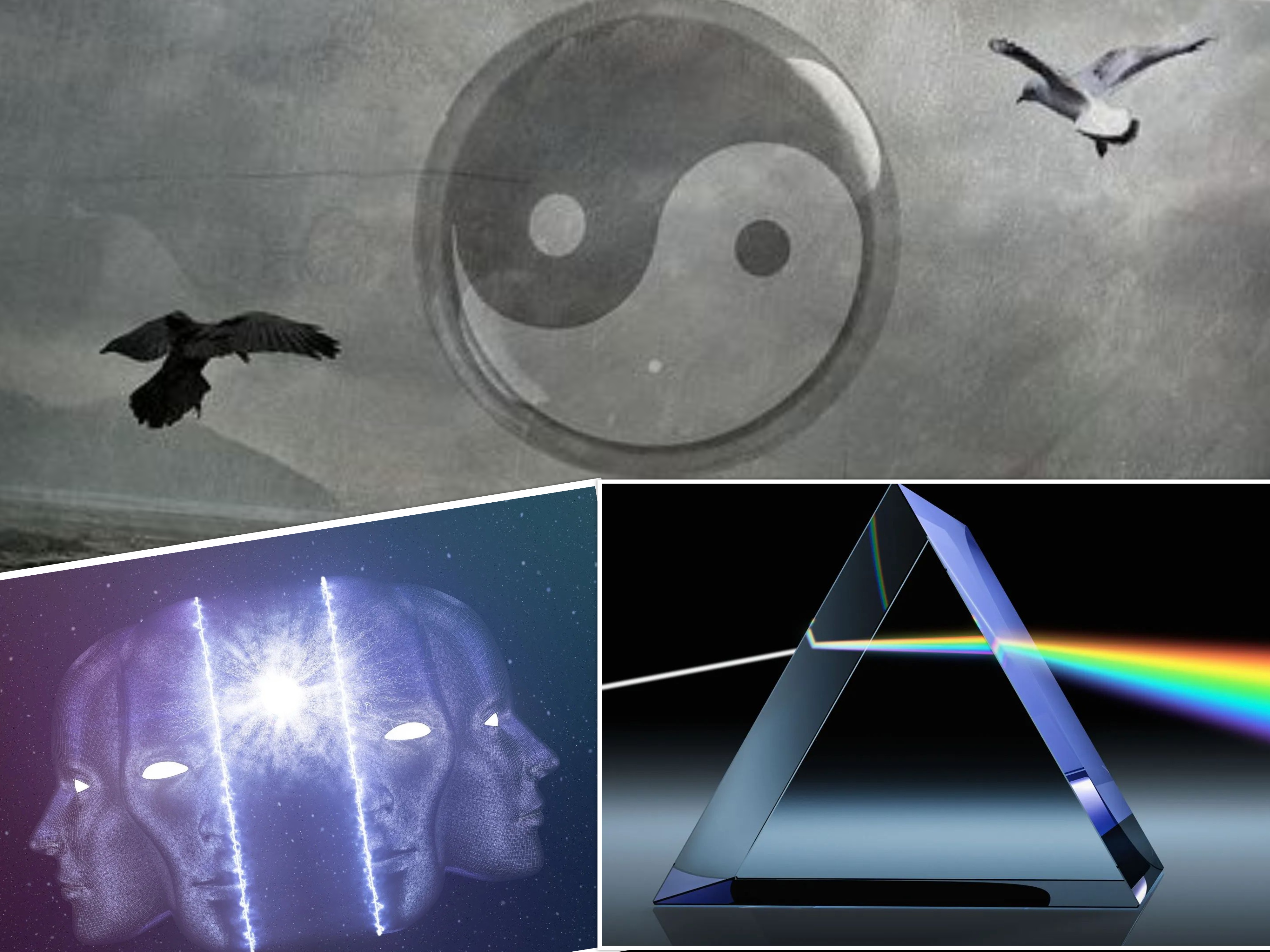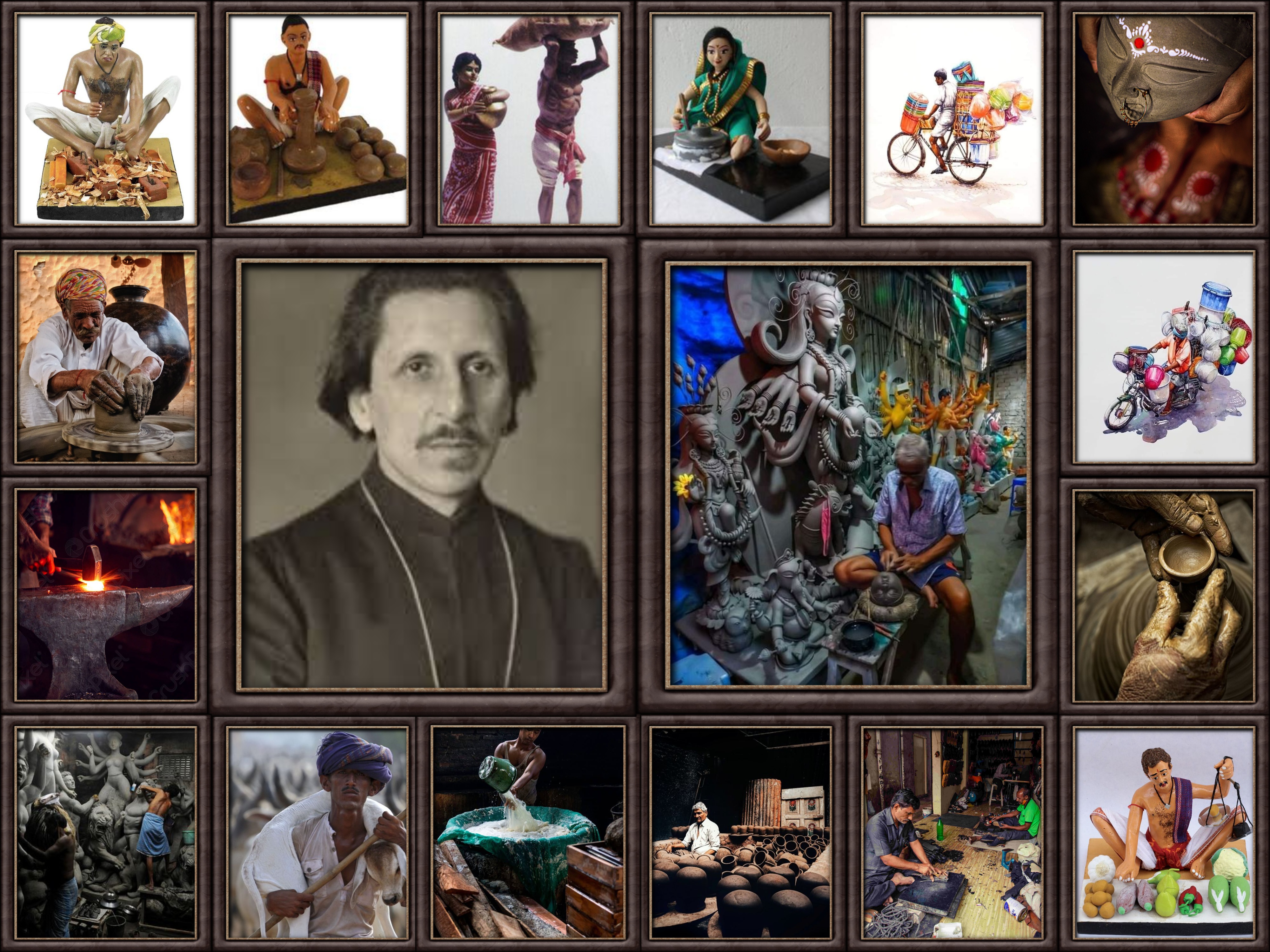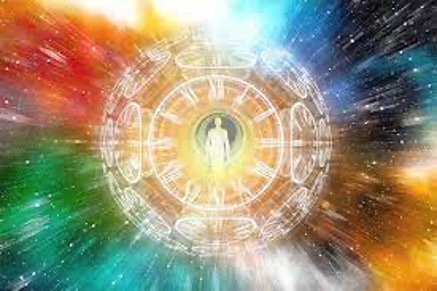- Visitor:86
- Published on:
Six Kinds of Intuitions (Pratibha)
In this excerpt from his famous work “The Vakyapadiya of Bhartrhari with the Vrtti” Shri K. A. Subramania Iyer discusses the nature of knowledge and the sense with which we acquire it. He does not only talk about the outer knowledge but also inner knowledge in this timeless gem on India’s great wisdom in language and linguistics.

If the knowledge obtained by the contact of the senses with the outside world and from the words of others is variable and unreliable, is there any other kind of knowledge which is reliable?
According to Bhartrhari, there is. Another kind of knowledge is taking place all the time in us and it is rooted in ourselves. When one sees things or hears words it is also working. It is a kind of flash of understanding not only of the data presented to us by the senses but also of what to do in a certain situation. It is a capacity to take in a situation and act. Bhartrhari points out that all living beings, from the highest to the lowest, have it, including animals and birds.
It is in the context of the consideration of the nature of the meaning of a sentence that Bhartrhari is led to make certain statements of a much wider scope. After having disposed of the views of others regarding the nature of the meaning of a sentence such as that it is samsarga = interconnection, kriya = action or prayojana = purpose, he declares that it is pratibha = intuition.

When we have understood the meaning of the words of a sentence, a flash of understanding of the meaning of the whole sentence takes place. It is quite different from the meanings of the individual words. It is sometimes understood even before the whole sentence has been uttered. It is not easy to explain this flash of understanding to others. But one cannot, for that reason, deny its existence. It is a matter of one’s own experience. Everybody experiences it without being able to define it properly to oneself, what to say of explaining it to others. Even though it is indefinable, we can see its effect and other circumstances connected with it.
Its chief effect is that it connects together the meanings conveyed by the different words of a sentence. It relates to the sentence as a whole on which it rests. The meanings of the individual words manifest it. If they did not, their cognition in the middle would serve no useful purpose. Thus, even though this intuition, pratibha, is indefinable, we can see its effect, we know where it rests and what manifests it.
It is something which arises spontaneously in all beings. It is like the power of intoxication which some substances develop when they become mature, without anything special being done to them. It is due to this pratibha that birds and animals engage in their natural activities, without any prompting or instruction. It is because of it that birds build their nests when the time comes and the cuckoo sings in spring.
It is clear from all this that, as conceived by Bhartrhari, pratibha is something very comprehensive. It is a flash of understanding which takes in a situation and prompts one to do something to meet the situation. One acts immediately without being conscious of doing any reflection in the middle. If one sees a pool of water on a very hot day, one instinctively goes and takes a dip in it. One does not pause to reflect.
Pratibha, includes intelligence of a high order, intuitive knowledge, the instinct of animals and birds and the spontaneous activities of newly-born babies. This kind of knowledge is far more reliable. It comes from within.
While speaking about it, Punyaraja reminds us of Kalidasa’s statement that, when in doubt, cultured people rely on the voice of their own conscience. It was an inner pratibha that told Duhsyanta that Shakuntala was fit to be married by a Ksatriya. The knowledge that one’s conscience gives is pratibha and everybody accepts it as authority.
This Pratibha arises in us in many ways. Among them, Bhartrhari, recognizes six causes and, therefore, six kinds of intuition. The six causes are: Svabhava, carana, abhyasa, Yoga, adrsta, and visistopahita.
The Karikas themselves do not give examples of these six kinds. Some are easy to understand while others are less so. It is natural for us to turn to the earliest commentary, the Vrtti, in such cases to see what kind of examples are given, especially as tradition looks upon it as Bhartrhari’s own work. Unfortunately, the text of the Vrtti here is doubtful in some places. As for Punyaraja, after having given a very banal example of the first kind, he dismisses the remaining five by saying that the reader can guess examples himself.
The first cause of Pratibha is Svabhava = Nature.
Here one would naturally think of the instinctive knowledge of animals and birds which enables them to engage in activities appropriate to their species.
 In fact, Punyaraja gives the example of the monkey and its activities. It is, therefore, interesting to see that the earliest commentary, the Vrtti, gives other examples of intuition arising out of Svabhava. The first example is that of Primordial Matter (Para Prakrtih) showing a predisposition to evolve into mahat, consisting of mere existence. This example is a little surprising. Matter is, after all, inert (Jada) whereas one associates pratibha with the living, with what has consciousness in however rudimentary a form. It is compared in the Vrtti to the spontaneous waking up of one who was in deep sleep. The association of sleep with its effect (ananda?) is also mentioned in this connection, though its relevance is not clear.
In fact, Punyaraja gives the example of the monkey and its activities. It is, therefore, interesting to see that the earliest commentary, the Vrtti, gives other examples of intuition arising out of Svabhava. The first example is that of Primordial Matter (Para Prakrtih) showing a predisposition to evolve into mahat, consisting of mere existence. This example is a little surprising. Matter is, after all, inert (Jada) whereas one associates pratibha with the living, with what has consciousness in however rudimentary a form. It is compared in the Vrtti to the spontaneous waking up of one who was in deep sleep. The association of sleep with its effect (ananda?) is also mentioned in this connection, though its relevance is not clear.
The next cause of Pratibha is said to be Carana. This word usually means a Vedic School. The text of the Vrtti where the example is given is uncertain but it may refer to the intuition of Vasistha and others who acquired special illumination by strictly observing the prescriptions of their Vedic School. Such observance has always been considered to be the cause of spiritual merit, resulting, in a special capacity to know things which others cannot know.
The next cause of intuition is abhyasa = practice. Again, by making a tentative amendation of the text of the Vrtti, one can perhaps say that there is a reference to the knowledge of those who can tell where water can be found for digging a well or a tank. It is not everybody who can tell that. It requires long practice before one can become an expert in such prediction. The word abhyasa comes in another context where also the knowledge of an expert is involved. The context is the unreliability of inferential knowledge or knowledge obtained by reasoning and the superiority of some other kinds of knowledge which cannot be set aside by mere reasoning.
Here it is said that the knowledge of experts who can tell the genuiness of precious stones and of coins is of a superior nature and cannot be identified with inferential knowledge. How do they acquire this knowledge? Through abhyasa = practice, we are told.
What is specifically denied is that it is inferential knowledge. One can see that there is some resemblance between the knowledge of one who can tell where water can be found and that of one who can guarantee the genuineness of precious stones. Bhartrhari does not actually use the word pratibha in regard to the latter but insists that it arises through abhyasa = practice, mentioned by him as one of the causes of pratibha.
Another noteworthy point is that this knowledge of genuineness is said to be indefinable and, therefore, incapable of being conveyed to others (paresam asamakhyeyam). We already know that this is a characteristic of all knowledge resulting from pratibha. Vrsabhadeva insists that the expert’s knowledge of the genuineness of precious stones cannot come under pratyaksa or anumana or agama. It is not pratyaksa because it is not caused by the mere contact of the senses with the object. It is not inference because it is not based on any ground of inference (linga). It is not agama, because it cannot be communicated to others nor was it conveyed to the expert by the words of others, whereas traditional knowledge can be so conveyed.
The next causes of Pratibha is said to be Yoga. It is said that through Yoga, one can know what is going on in other people’s minds.
What is called adrsta is mentioned next as a cause of Intuition. It is an invisible force generated by one’s own deeds in the previous lives. It determines many things in one’s present life. Among them is its power to confer special knowledge on some. The example given in the Vrtti, in this context, is the power of Raksas and Pisacas which enables them to enter into the bodies of others and to make themselves invisible. It might be said that this is a case of the invisible force resulting in a power to do unusual things and not in a special knowledge. It is, therefore, necessary to take this with what Bhartrhari says in the other context, namely, that of the unreliability and the consequent inferiority of the knowledge produced by reasoning.
There we are told that the Pitrs, Raksas and Pisacas get some cognitions which are different from perceptive, inferential and traditional knowledge and which are the result of the force created by their deeds in their previous birth (adrsta).
The Vrtti here explains that deaf people hear sounds in their sleep and that some persons can see minute things inside houses through thick walls without breaking them. This knowledge is attributed to their adrsta. The fact that, in these two contexts, adrsta is described as giving special knowledge as well as the power to do something special shows its two-fold character: intuitive knowledge of a situation plus the capacity to act in that situation.
Lastly, there is the intuitive caused by the grace of a special person (visstopahita). The example given is that of the special knowledge which Krsna Dvaipayana gave to Sanjaya and others at the time of the Mahabharata war, so that they could see the war, scattered over a big area, in its totality and in its details.
Thus, it is clear that pratibha has been conceived in a very comprehensive way. It is something which comes from within, is found in all beings from animals and birds at one end and Rsis like Vasistha at the other. Everybody accepts its authority.
- 43 min read
- 1
- 0










